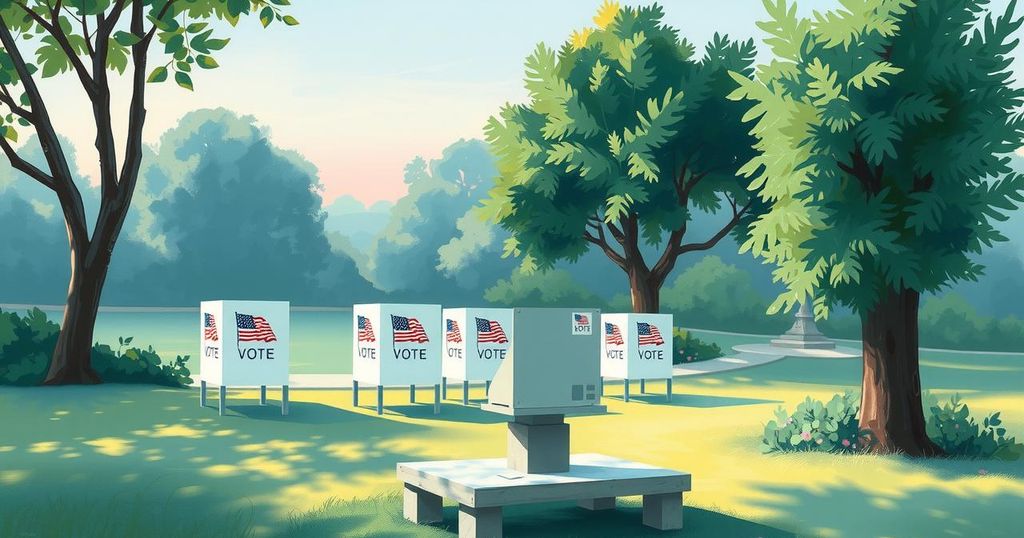World news
AMERICA, ASIA, AUSTRALIA, BEN WELLINGS, CANADA, CANADIAN LIBERAL PARTY, CLAYTON, CLAYTON CHIN, COALITION, CUBA, DONALD TRUMP, DUTTON, ELECTION, GOVERNMENT, IMMIGRATION POLICY, JAPAN, JUSTIN TRUDEAU, LABOR, LIBERAL PARTY, MARK CARNEY, MELBOURNE, MONASH UNIVERSITY, NORTH AMERICA, OCEANIA, PETER DUTTON, PIERRE POILIEVRE, POILIEVRE, POLITICS, POPULISM, TRUDEAU, TRUMP, UNIVERSITY, US, USA
Elena Martinez
0 Comments
The Influence of Donald Trump on the Canadian and Australian Elections
Donald Trump’s influence casts a long shadow over the Australian and Canadian elections, leading to a dramatic decline in support for conservative parties. Both Pierre Poilievre and Peter Dutton are now trailing behind their incumbent counterparts. Voter sentiment has shifted significantly, revealing deep mistrust towards Trump and a desire for leadership which prioritizes national sovereignty.
In the forthcoming weeks, Canadian and Australian voters will participate in elections that have seen significant shifts in political dynamics. Initially, opposition conservative parties were poised for victory; however, a decline in their polling figures has positioned them behind incumbent centre-left parties. Ben Wellings, a senior lecturer in politics at Monash University, notes the correlation between the downturn of conservative candidates Pierre Poilievre in Canada and Peter Dutton in Australia with the influence of Donald Trump.
The polling data illustrates a sharp decline for both conservative parties. In Australia, the Coalition experienced a rise in popularity earlier this year but faced a dramatic drop in February correlating with Trump’s trade policies post-inauguration. Similarly, Canadian conservatives saw a significant voter shift from a 20-point lead over the Liberals to a six-point deficit, especially following Prime Minister Justin Trudeau’s robust response to Trump’s trade war.
The changing political landscape necessitated a rapid adaptation from conservative leaders such as Poilievre, who failed to pivot adequately in response to emerging issues. In Australia, Dutton faced criticism after deeming Trump as a “big thinker”. The connection to Trump deepened as Dutton’s shadow minister adopted pro-Trump rhetoric, further complicating their political stance.
Political analysts acknowledge parallels in how Trump’s influence shapes conservative campaigns in both nations. While populist sentiments attracted some Australian conservatives, they have recently distanced themselves from those viewpoints. In contrast, the emotional response in Canada is intensified by perceived threats to sovereignty.
Polling indicates a growing anti-Trump sentiment in Australia, with a substantial percentage of undecided voters expressing reluctance to support Dutton due to Trump’s political influence. The Lowy Institute’s poll revealed that nearly two-thirds of Australians harbor mistrust toward the United States to act responsibly.
The overwhelming response to Trump’s association has been one of displeasure across various demographics. Voters from both countries express a desire for leaders ready to stand against the United States on principled grounds, reflecting their sentiments toward the perceived betrayal of friendship due to Trump’s actions.
As elections approach, criticism of Conservative campaigns in both countries is emerging. In Canada, a prominent Conservative strategist condemned the party’s drastic polling decline, attributing it to maladaptive strategy and external shocks, primarily Trump’s impact. Analysts like Antony Green note that such abrupt electoral shifts do not occur without significant external influences. The 2023 elections in Australia and Canada signal a departure from conventional expectations, heavily influenced by the ongoing Trump phenomenon.
The upcoming elections in Canada and Australia demonstrate significant shifts influenced by Donald Trump’s political presence, affecting conservative parties adversely. Both Pierre Poilievre and Peter Dutton are grappling with declining support, as voter sentiment moves against their alignment with Trump. The impact of Trump’s policies has catalyzed a reconsideration of party positions, revealing a populace increasingly skeptical of U.S. leadership. As developments unfold, the repercussions of Trump’s influence on these elections may serve as a pivotal turning point in both countries’ political landscapes.
Original Source: www.abc.net.au




Post Comment